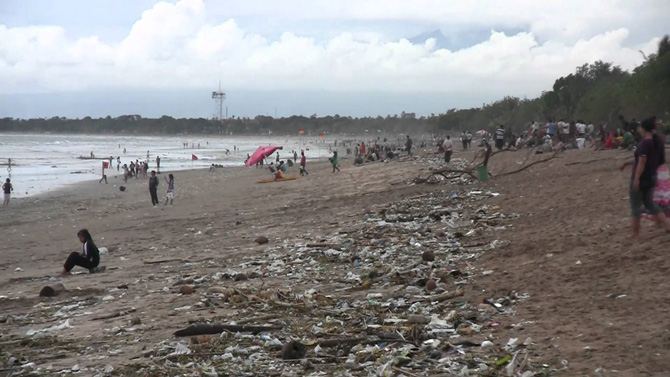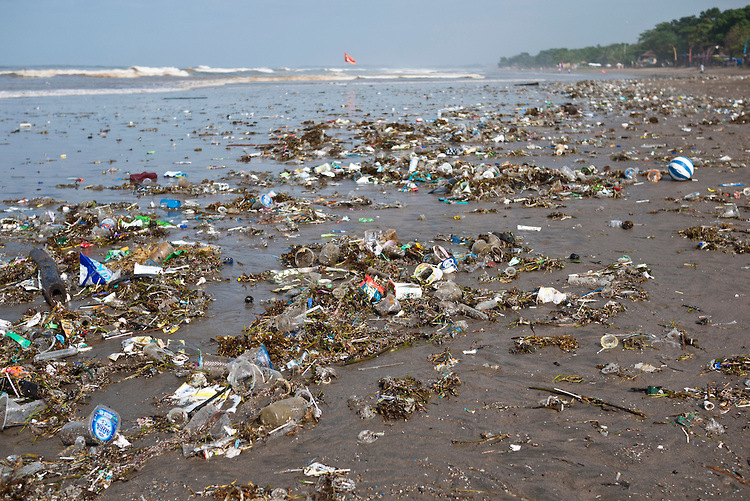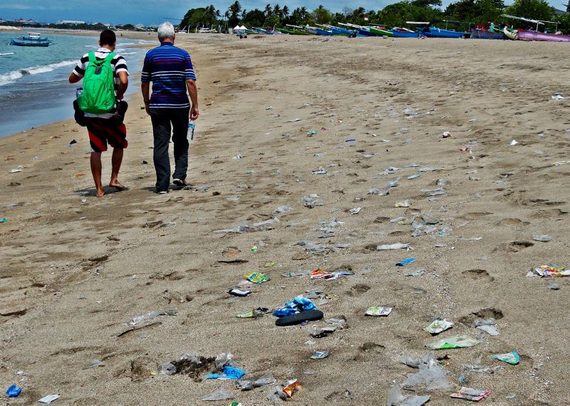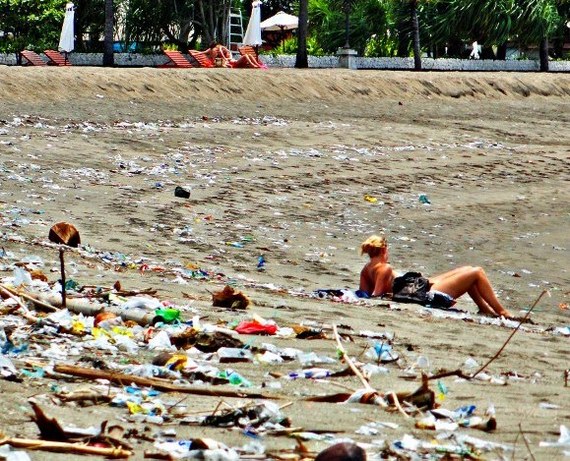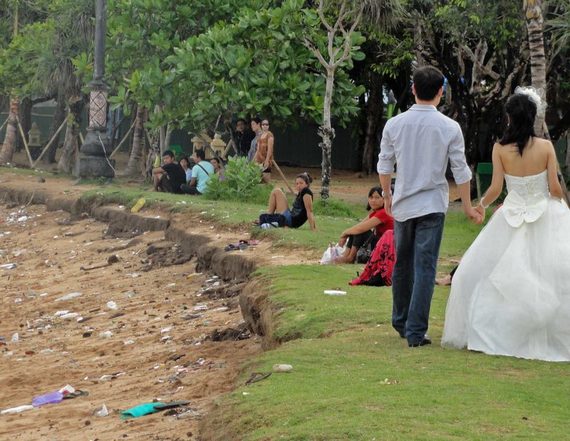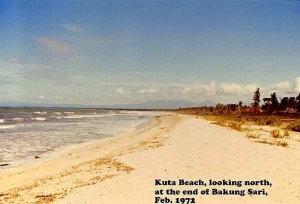If you know Bali, you probably know that this island in the Indonesian archipelago has attracted many tourists since the early 1970s, with good and bad sides.
Indonesia and more developing countries are facing an uncontrolled growth. However, progress and developments are rarely done without mistakes, in a blur of urban planning rules more or less respected and unfortunately, the corruption level in Indonesia doesn’t help. All of that almost without quite much a real urban organization.
When I decided to drop my luggage, I did not expect to see this :
- Plastic waste and rubbish on Kuta Beach, Bali, Indonesia.
- Plastic waste and rubbish on Kuta Beach, Bali, Indonesia.
- Plastic waste and rubbish on Kuta Beach, Bali, Indonesia.
- Plastic waste and rubbish on Kuta Beach, Bali, Indonesia.
- Plastic waste and rubbish on Kuta Beach, Bali, Indonesia.
Formerly, everyday food was packaged in biodegradable containers, such as banana leaves. In consequence, Indonesian were throwing away their “Bunkus” (takeaway) once finished in nature. It wasn’t a problem that time. The habits remained but the packaging has changed. Now it’s made of plastic which reappear every rainy season, washed away in ocean through the streams and rivers from Bali heights, and the tides finally drop off this pile of filthy garbage on the beach.
In the 1970s, the beach was looking like this:
Waste management is a recurring problem and still unresolved. We can blame the lack of effective road infrastructure generating monstrous jams all year and public transport completely absent as other similar problems due to a lack of control of the 2-figures growth of the country. The frenzy of hotel and urban development is also an element which have been too little controlled and regulated.
These problems are unfortunately not isolated, pollution concerns exists throughout Indonesia and many other countries in Asia and Africa to name a few. They are particularly visible in Bali because of the high concentration of population and visiting tourists.
Instilling positive change
There are many initiatives to clean the beaches every day during the rainy season, like “Keep Bali Clean” or “Bye Bye Plastic Bags” but little awareness of the Balinese to use less disposable packaging, and reuse or recycle rather than throwing away in nature (eg cups of water, plastic bottles …). BioWearBali sells plastic bag and biodegradable packaging. EnviroPallets recycles plastic waste to produce pallets for transporting goods. There are many good ideas, it lacks only an awareness and a willingness on the part of local populations and policymakers.
Raise local awareness
These initiatives are useless if every year more and more plastic waste is not disposed properly. We must therefore educate the local population and raise awareness of plastic waste which degrades in nature only after several decades, and even more with certain types of plastics and other type of waste!
Burning piles of waste in nature is not a solution neither, the smokes created being toxic and transform the plastic in even smaller parts, which then seep into the ground and eventually into the groundwater when rain falls.
What about Sumba?
The same habits are visible on Sumba, but to a lesser extent given the number of inhabitants of the island and its size. The problem is present and will tend to grow as the number of inhabitants and tourists will grow. That is why it is important for us to invest on local populations to make them aware of the consequences of the discharge of waste in nature.
Believe it or not, but it is not uncommon to see houses with garden completely littered with an incredible amount of single use plastic water cups with plastic cover. The problem of an “Indonesian polluter” is not to hide waste in nature out of his sight, it is related to education and culture, combined with the new use of plastic food containers.
Regarding this topic, it is crucial to raise awareness and educate local people to respect nature and waste management.
The problem is not plastic, it is what we do after its use.


